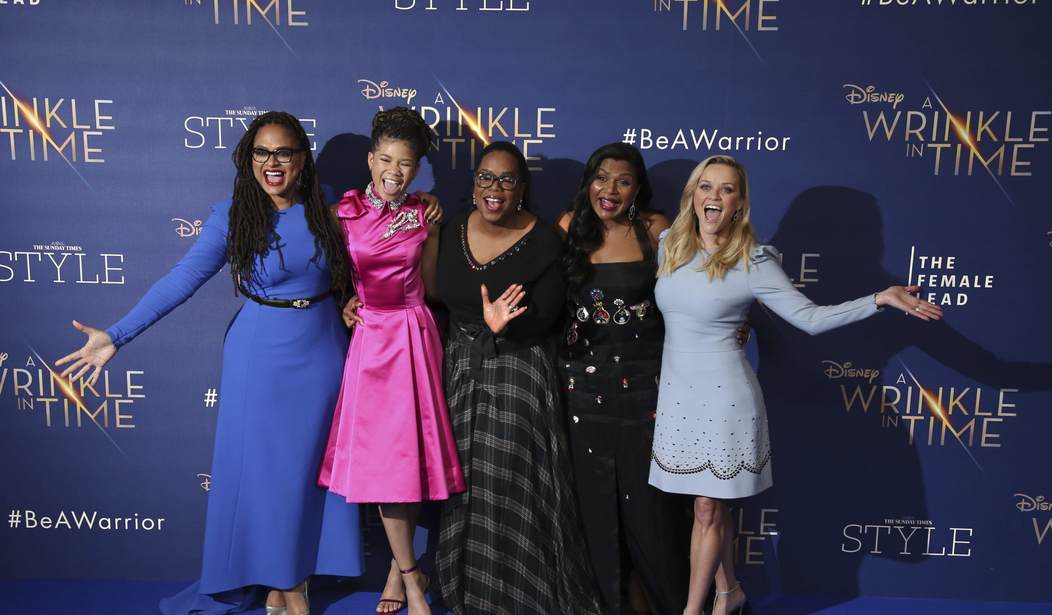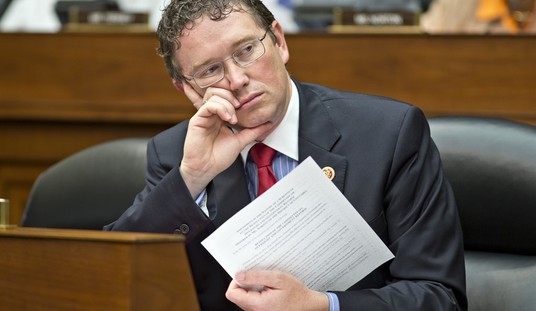Ava DuVernay, a black activist who directed a whole movie arguing that mass incarceration (a multi-racial problem) is a continuation of race-based slavery, suggested that racism explains why her latest movie, “A Wrinkle in Time,” got bad reviews.
DuVernay gave a back-handed compliment to Vulture’s Kyle Buchanan, who wrote about the “subtle, resonant” theme of the black main character’s insecurity about her hair. “You were the only Caucasian journalist of any gender to see it, understand it and seriously ask me about it. Appreciate the chat, the sensitivity and the writing,” the director tweeted.
You were the only Caucasian journalist of any gender to see it, understand it and seriously ask me about it. Appreciate the chat, the sensitivity and the writing. https://t.co/jEu0bkt3MV
— Ava DuVernay (@ava) March 12, 2018
Hair is indeed a sensitive issue among black women, and the film captured both the insecurity and the beauty of actress Storm Reid’s unique curly hairstyle well. Even so, this theme was a tiny fraction of the film, and in the context of the bad reviews, DuVernay’s focus on this element seems a desperate distraction.
You had wonderful questions about black girls, self-esteem around issues of standardized beauty and our hair. Thank you. #WrinkleinLondon https://t.co/nrYaQwSBY6
— Ava DuVernay (@ava) March 12, 2018
“A Wrinkle in Time” has a “rotten” 42 percent rating among reviewers on Rotten Tomatoes. Many mass-market films have negative reviewer scores but positive audience ratings, but not this movie. The audience rating proved even worse for “A Wrinkle in Time,” at a tragic “rotten” 36 percent.
Race didn’t drive these negative reviews — content did. The film’s focus on psychedelic themes without strong substance behind them really cut the power of the story. Many black reviewers panned the film.Slate’s Aisha Harris reported that the movie “stumbles in its world building and can’t quite find its groove.” Over at Punch Drunk Critics, Travis Hopson wrote that “the film, for all of its wondrous visuals and good intentions, never takes off and soars the way we keep hoping it will.” The Ringer’s K. Austin Collins agreed. “There’s a good movie in here somewhere, but it’s beset with too many obligations, and maybe too much in the way of expectations,” he wrote.
In an interview with Screen Rant, writer Jennifer Lee explained why she took out the Christian themes and Bible references from the book. “It wasn’t removed, it was just opened up in language that wasn’t exclusive, guardian angels versus stars, are they the same thing? Maybe,” Lee said. She emphasized “inclusivity,” saying, “Since we’re not limiting, we’re not picking some religion, but we’re saying we all feel, we can feel that you’re a part of something extraordinary and the messages are the same.”
This helps explain why the film ditched the book’s explicit Christian themes, trading them for vague New Age spirituality that failed to deliver the depth of the original story. Furthermore, it is the exact opposite of “inclusive” to excise all Christian historical references, even to Jesus, Copernicus, or Michelangelo.
As The Federalist’s Ellie Bufkin noted, non-Christian and liberal reviewers agreed that the removal of Christianity from “A Wrinkle in Time” severely weakened the movie.
“L’Engle’s Christianity was about balancing seemingly impossible ideas — paradox — and discovering and maintaining faith, in spite of the seeming chaos of the surrounding world,” Tara Isabella Burton wrote in Vox. Burton described L’Engle’s “approach to storytelling” as “an act of vulnerability, love, and faith no less Christian than Meg Murry’s final defense of Charles Wallace. What a pity the film couldn’t show both.”
In 2010, Lucy Tang predicted that Hollywood would excise faith from the movie, and that doing so would be a grievous mistake. “L’Engle’s life philosophy is the kind of happy religious pluralism in which Christians, Jews, Muslims, Buddhists, and even scientists can live together in peace,” Tang wrote. This message of peaceful pluralism seems more important than ever in 2018, but Lee and DuVernay chose to excise it.
Whatever the reasons, reviewers and audiences have been disappointed by “A Wrinkle in Time.” Neither were disappointed in “Black Panther.” Critics gave the Marvel movie a “certified fresh” rating of 97 percent, and audiences gave it a 79 percent.
Perhaps if the competition for “A Wrinkle in Time” had been a film with a white director, a white hero, or a white majority cast, DuVernay’s racial response would be much larger than one mere tweet thanking the rare “Caucasian” journalist who “gets it.”
Instead, the director retweeted message after message praising “Black Panther,” but with a twist. Many news outlets reported that “Black Panther” remained at first place at the box office, beating out “A Wrinkle in Time” quite handily. DuVernay retweeted people who attempted to flip this narrative, noting the historic nature of two black directors leading films in the #1 and #2 spots at the box office.
*2 Black directors in the 1&2 spot. Both making history* Fixed it for you. https://t.co/dxMPH6jr2j
— Reagan Gomez (@ReaganGomez) March 10, 2018
The director also retweeted this message.
Another way of framing this would be, “Weekend Box Office: For the first time in Hollywood history the top two movies in America were directed by a Black Man (#BlackPanther) and a Black Woman (#AWrinkleInTime)” https://t.co/AjuWXCZWPy
— L E F T, PhD ⚫️ (@LeftSentThis) March 10, 2018
Tragically, DuVernay also retweeted a personal story about the two films. “The Monday after Black Panther opened, I felt more confident and capable as a black person. Today, the whole time watching [A Wrinkle in Time] I felt broken pieces of my little girl self stitch themselves back together. And I wept under my 3D glasses the whole time. Thank you Ava,” a user named Auntie Ramonda tweeted.
https://twitter.com/IsisSpkz/status/972753853773897728
“Black Panther” blew DuVernay’s film out of the water, and critics of all races agreed. Some of the more religious might note that while DuVernay and Lee were working on removing Christian references from “A Wrinkle in Time,” actors were “testifying to God’s miracles” on the set of “Black Panther,” making it feel “almost like church.”
Contrary to DuVernay’s back-handed compliment to Kyle Buchanan, the criticism of “A Wrinkle in Time” has less to do with race and more to do with film content. Perhaps she should learn from her mistakes, rather than suggesting her film’s failures can be attributed to the blindness of “Caucasians.”









Join the conversation as a VIP Member